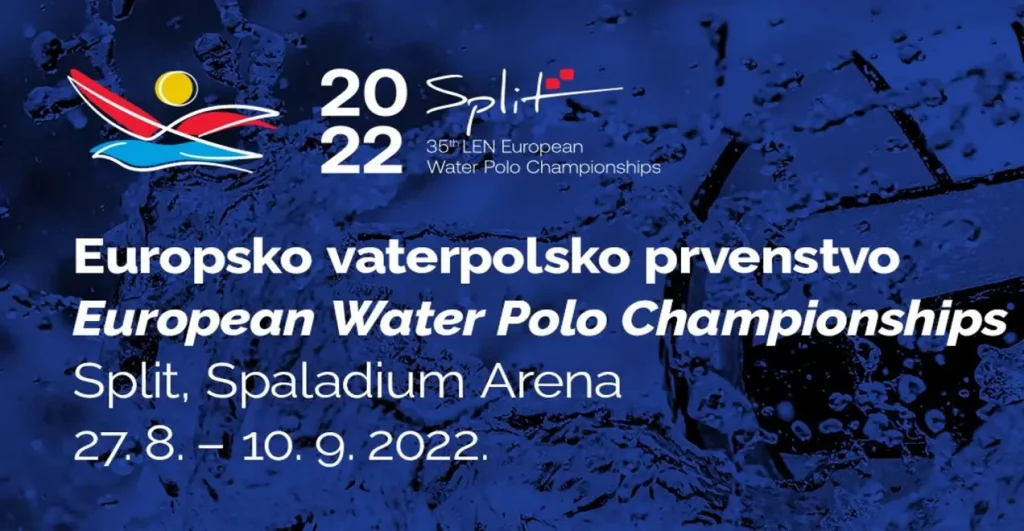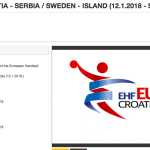The European Water Polo Championship will be held there from August 27 to September 10, with of over a thousand participants, at least 300 journalists and an estimated several thousand fans, especially at the end of the competition. 24 national teams will compete in Split – 16 in the men’s and eight in the women’s competition. For that occasion, the Spaladium arena will have a capacity of nine thousand spectators.
‘Everything is going on as planned. We had a lot of modifications in order to find the optimal solution for simultaneously heating the pool and cooling the space, as well as for drainage. The platform around the pool itself, the stage, LED screens and other facilities are being set up, but we expect that seven days before the start of the championship everything will be completely ready,’ says Renato Živković, general secretary of the Croatian Water Polo Association, for portal.
The transformation of the sports hall into a swimming pool was planned back in 2010 when the European Championship was held in Zagreb, but it was abandoned ‘due to political and technical problems’. In fact, the Spaladium arena was built to be able to host water sports if needed, so there are actually no major problems when converting it. A swimming pool measuring 36 by 25 meters was installed in the large hall, with a volume of two million liters of water, and in the smaller hall, there’s one half its size, with a capacity of one million liters.
‘It will be very lively in Split at the end of August and at the beginning of September. We are planning a series of accompanying events: the traditional caricature festival has water polo as its theme, so we received a huge number of interesting works from all over the world. The sports museum will exhibit a special exhibition on this topic, a large congress for trainers and doctors will be held in the organization of the Faculty of Kinesiology, and the party will last every day in the city center,’ Živković tells us.
A special attraction will be the installation of a summer pool in the sea on the iconic Bačvice beach, where the first water polo match was played back in 1908. Exhibition matches are planned there, as well as a camp for the youngest water polo players, but ‘ordinary’ swimmers will also be able to join.
The budget of the European Championship is estimated at around five million euros; apart from the Government, the County and the City of Split, it was strongly supported by several sponsors such as OTP Bank and HEP. The big item was the purchase of two valuable pool shells, which will be dismantled and installed in another location after the championship. As it was agreed that they should belong to Split, we asked Deputy Mayor Antoni Kuzmanić what he would do with them. The two pool shells will be dismantled after the championship, and then installed in another location.
“We planned to install them at the location of the Mornar swimming pool, where there is already a natural sea pool, but from the technical side it is not the best solution and it is completely unprofitable in the long term. There is no documentation prepared for any of the other locations, and it would be an extreme shame to store the shells because that way they deteriorate very quickly. Therefore, we will call for a tender for their sale, and with that money, we will completely restore the existing Jadran pool in Zvončac,’ said Kuzmanić for tportal. Apparently, there are already several cities interested in buying, among others Zadar and Bakar.
Kuzmanić announces that the Split government will soon announce a unique tender for several sports zones in the city – Poljud, Brodarica, Stari plac and the ‘Istok project’ – and will thereby define the overall sports facilities in the city and meet the needs of all sports. In any case, the new swimming pool complex is planned in the east of the city.
The Croatian Water Polo Association did not make any specific statement about the fate of pool shells: ‘It is important that they remain in Croatia and be at the service of athletes and citizens,’ says HVS Secretary General Živković. The accountd of the Spaladium arena, part of the never-completed sports and business complex, which is the subject of a number of court cases, was recently blocked by the City of Split due to debt for communal fees in the amount of HRK 23 million. The block was temporarily lifted mostly so that the water polo championship can happen as planned, but the operation of the sports hall after that is very uncertain. The company that manages it is in bankruptcy anyway, and the regular income is not enough to pay all expenses such as energy, employee wages and the mentioned utility fee. It’s almost inevitable that the sports hall will have to be sold.









